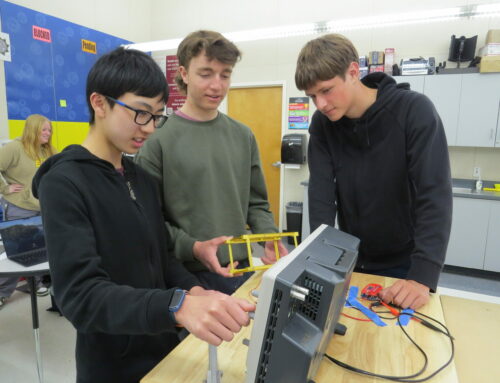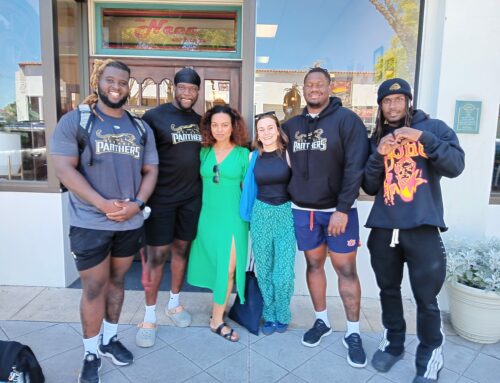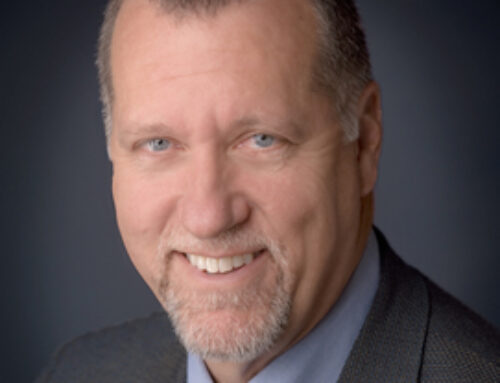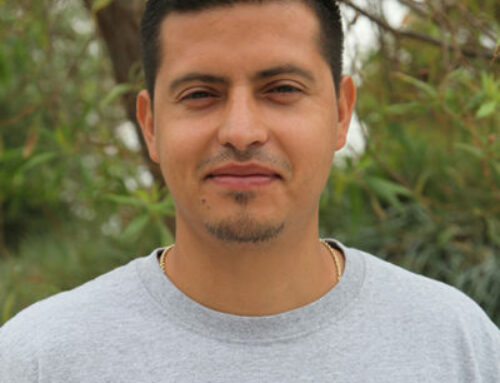Published in the June 22 – July 5, 2016 issue of Morgan Hill Life

Marty Cheek
This election season, the word “great” has slid itself into our nation’s political conversation. We as a people have begun an insidious doubting in our country’s heritage and values. Many of us wonder how we might make our America “great again.”
If you’re like me and concerned about this question of American greatness, take a few minutes this July 4 to watch on YouTube a video of the now iconic opening scene from the debut show of HBO’s series “The Newsroom.”
The protagonist anchorman Will McAvoy, played by Jeff Daniels, is asked by a female journalism student at a Northwestern University panel discussion why he believes America is the “greatest country in the world.” Daniel’s character rants off a tirade of depressing statistics to rebut the premise of the young woman’s question. He concludes with the solemn statement, “The first step in solving any problem is to recognize there is one. America is not the greatest country in the world anymore.”
The video has generated millions of views. The powerful soliloquy hits home with many Americans because its is bipartisan and makes a poignant contrast between the youthful enthusiasm of our perceived united “greatness” in the historic past and the present day’s political malaise where we have grown dangerously divided as a people.
But then again, maybe this doubt is something we have always had as a nation. Maybe it’s an inherent part of our national DNA to always idealize America’s yesterdays as golden in relation to the reality of our gray-colored today.
Take a step back and consider the 240 years of our American experiment. You’ll see that the fates have always thrown curve balls at us. We’ve often been divided as a people on how to face these seemingly overwhelming challenges. Start with the very birth of America itself.
Remember that our Founding Fathers in the summer of 1776 were heatedly divided on the contentious question of breaking off politically from the British Empire and going it alone as a nation based on the then radical Enlightenment principals of democratic governance. We were attempting something never tried before. Somehow, a rag-tag bunch of soldiers joining together from culturally and economically diverse colonies beat the world’s greatest military power. With the leadership of George Washington, we set ourselves in motion as a nation headed toward global greatness.
Our nation faced its greatest hurdle in the 1860s debating the moral question of whether human beings could legally be kept in bondage as the property of other people. An uncivil war where brother fought against brother in bloody battles nearly brought an end to the American experiment. Somehow through the genius leadership of President Abraham Lincoln, we found a way to preserve our union and grow even greater as a united people.
We faced together the double trials of the 1930s global economic decline and the rise of fascism, which was stimulated by that decade’s financial failings. We lucked out in having the leadership of an optimist in the White House, a man in a wheelchair who told us we had nothing to fear but fear itself. Somehow, the persuasive radio talks of President Franklin D. Roosevelt made us believe in ourselves once again and in our potential for greatness as a people. The “Greatest Generation” rose to this historic challenge and brought an end to the reign of tyrants in Europe and Asia — and saved civilization.
The decades following this global war brought our nation even more challenges, testing us but also empowering us to rise to the pinnacle in the pantheon of history’s greatest nations. We faced the fact civilization was on the brink of utter annihilation, with nuclear weapons waiting in readiness in underground missile silos and on B-1 bombers. Within minutes, Russia and America could launch humanity back to the Stone Age.
During those decades, we also faced the question of human equality, with American people of a darker skin color made to ride in the back of city buses or step out of the supermarket checkout line if another American with paler skin happened to want to pay for their groceries. Somehow, we made it through the Cold War and Civil Rights phase of the American experiment.
The signing of federal laws by President Lyndon B. Johnson prohibited racial discrimination in our voting booths, public schools and other institutions of society.
And with the leadership of President Ronald Reagan demanding that a wall in Berlin be torn down, the world saw a swift end to the tyranny of communism and the threat of nuclear nightmare.
We Americans have always faced adversity and found a way through it together. We have often doubted our greatness as a nation. Somehow, despite the adversity and doubt, we’ve achieved great things as a people. Perhaps the reason why is because we’ve had leaders who were visionaries encouraging us to believe in ourselves and make the world better.
We’ve managed throughout our history to find in ourselves the courage to be creative and innovate solutions to our problems. We’ve found the greatness in ourselves to build America as a nation of industry and imagination. That quality of national character enabled us to voyage to the Moon and create the Internet and do a gazillion other amazing things. We still have it in us to continue that tradition.
The first step in solving any problem is to recognize there is one. Our problem is we’ve simply lost faith in ourselves and forgot our heritage.
Maybe, just maybe, if we decide to believe once more in the potential of our people and stand united behind our proud experiment in self-governance, we can truly make America the greatest country in the world again.
Published in the June 22 – July 5, 2016 issue of Morgan Hill Life






